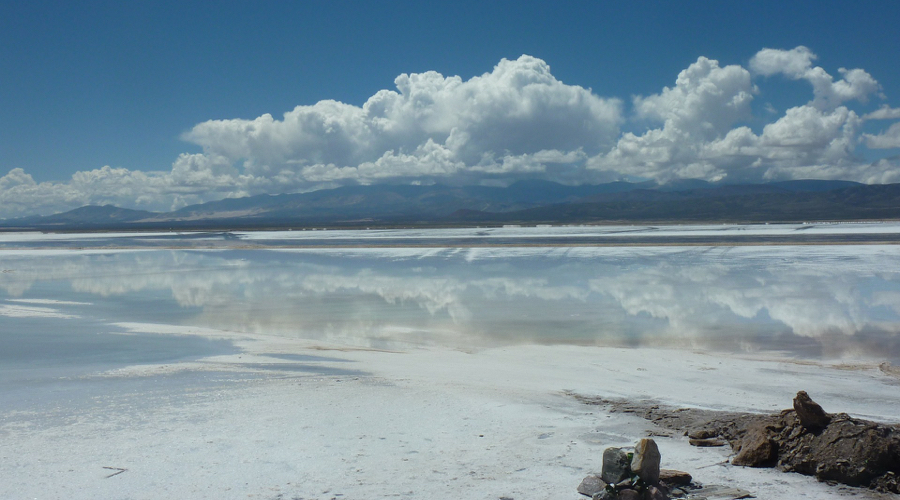Argentinian provinces join “lithium board” to regulate industry

The northern Argentinian provinces of Jujuy, Salta and Catamarca decided to join forces in a “lithium board” whose main objective would be to establish and enforce a regulatory framework that should be observed by mining companies.
Among other things, the board would establish best practices in terms of environmental impact monitoring, water-quality tests and toxic waste management, as well as redefine the mechanisms used to issue mining licences.
For now, the royalties that miners have to pay to regional governments will remain at 3 per cent.
Together with Chile and Bolivia, Argentina is part of the so-called “lithium triangle” and hosts close to 13 per cent of the global lithium reserves. Data from the Secretariat of Mines reveal that the country has 873,000 hectares available for the extraction of the white mineral and 53 projects whose investments add up to $2 billion are already underway. Between now and 2022, lithium is expected to bring about $7.7 billion into Argentina’s coffers.
The government agency has also stated that the province of Salta received $400 million in lithium mining investments, while Jujuy and Catamarca expect to collect some $700 million by 2019.
As the money is flowing, a silent corporate war is taking place, says local news site Infobae. In their quest for getting a hold of lithium-rich sites, companies from Japan, Canada, South Korea, China, Australia, France and the United States have been trying their best moves to negotiate with regional and federal authorities. This has been the case especially after Bolivia, a country that holds the world’s largest identified reserves, nationalized some foreign companies’ lithium assets, and following Chile’s decision to put caps on lithium extraction from the surroundings of its mountain range.
Lithium, frequently referred to as “white petroleum,” drives much of the modern world, as it has become an irreplaceable component of rechargeable batteries used in high tech devices.
{{ commodity.name }}
{{ post.title }}
{{ post.date }}




Comments
Golden Arrow Resources
Argentina Lithium and Energy LIT.v